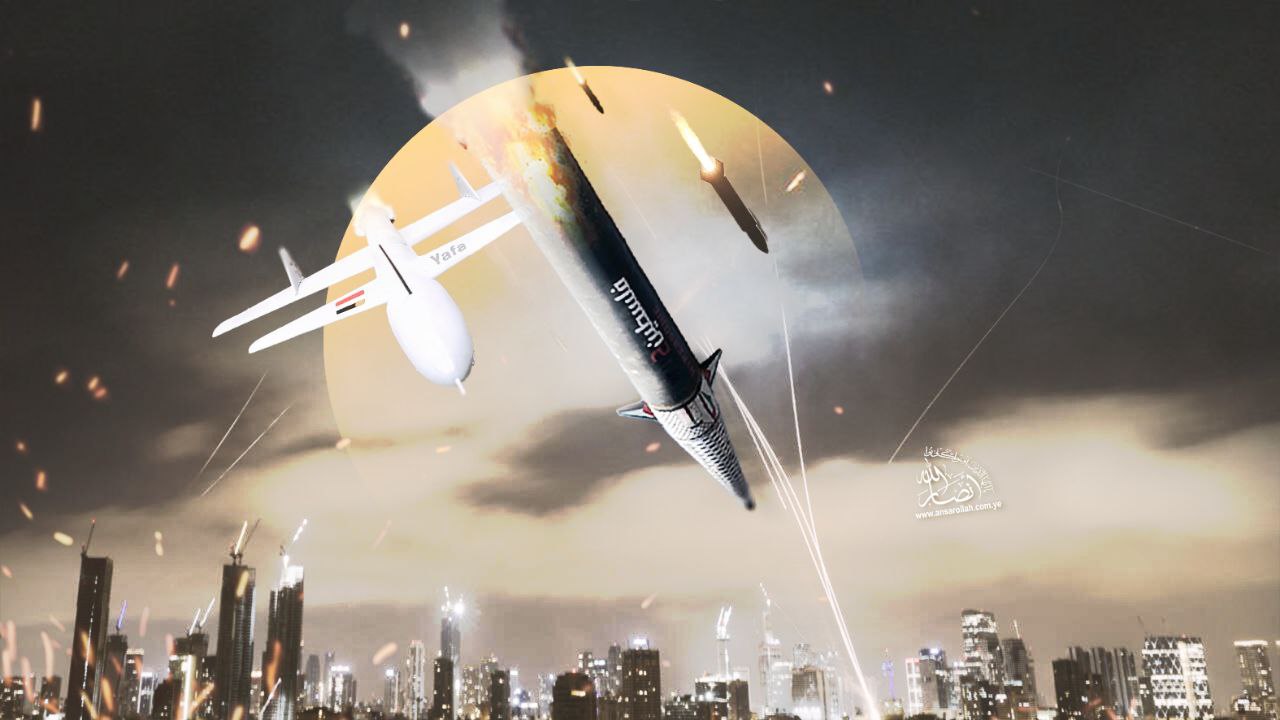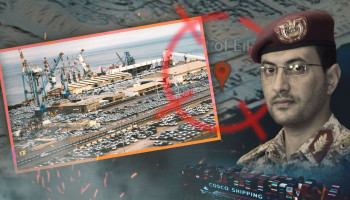Published: Safar 2, 1447 AH
It came as no surprise when the Israeli entity once again targeted the Port of Hudaydah, in an act marked only by thuggishness and strategic failure. Despite its military ambitions, the Zionist enemy has failed to bring about any meaningful shift in the balance of power. Its claim that the attack aims to “reinforce the blockade on Yemen to prevent arms smuggling” is a tired excuse that no longer holds weight, particularly as even Israeli and American research centers have thoroughly studied the issue and concluded that Yemeni forces manufacture and deploy their weapons independently on the battlefield.
Major Western media platforms have repeatedly confirmed this reality. The Economist noted that “Yemen not only possesses weapons but also holds the political decision-making power to use them when necessary.”
Zionist General Amir Noy also acknowledged that Yemeni forces are a military and political force in their own right, with a developed domestic arms industry and independent offensive strategies, making them now a top-tier security threat to "Israel."
What is now widely accepted is that the Zionist enemy lacks any intelligence capabilities that could help shift the tide against the Yemeni front. Instead, the Zionist entity returns to the same targets, reinforcing the world’s belief that its military apparatus — made up of gangs, thugs, recruits, and a colonizing society — now operates in a state of panic, erratic behavior, and strategic incoherence.
A report by the British strategic consultancy firm Azure Strategy described Yemen as a “black hole” of intelligence for Washington and Western spy agencies.
Since 2015, American airstrikes targeting Yemeni civilian infrastructure have achieved no meaningful strategic gains. The American President Trump and the rest of the U.S. political elite are well aware of this failure. Recent attacks on Yemen, meant to defend the Zionist entity, have only highlighted both the moral bankruptcy of the aggressors and the futility of their military efforts.
Throughout this campaign, U.S. strikes have resembled gang tactics: killing livestock, torching farms, destroying water tanks, and electricity generators. When the Israeli entity steps in to carry out the same tactics, the result is only a further collapse of its image as a regional power capable of deterrence or dominance.
Each new assault on Yemen — such as the most recent on the Port of Hudaydah — only reinforces the belief within Zionist circles that these attacks are nothing more than ritualistic gestures, incapable of deterring Yemen’s steadfast defense of the Palestinian cause.
The Israeli enemy’s recklessness is now met with swift Yemeni retaliation, reinforcing the fact that Yemen has assumed the responsibility of disciplining the enemy, forcing it to confront the hard truth: the myth of Zionist deterrence has evaporated in Yemen.
“The Red Sea will remain under the control of its own people,” is not just a slogan — it is a reality that now defines the strategic landscape. Western powers, regardless of their military might, are increasingly forced to act cautiously. Yemen, through divine strength and the resolve of the righteous, remains the dominant force.
According to The Economist, “military operations in the Red Sea confirm that control over Bab al-Mandab has shifted decisively to Yemen, not Washington.” Even the deployment of five American aircraft carriers, once symbols of naval supremacy, has failed to reverse this shift.
A key symbol of Yemeni control is the tightened siege on the port of Umm al-Rashrash (Eilat). On Sunday, July 20, the so-called "Israeli Ports and Navigation Authority" officially closed the port after failing to lift the blockade imposed by Sanaa. Umm al-Rashrash is not just a port — it is a strategic military installation, a key naval base, and a vital logistics hub through which vehicle shipments and spare parts enter the Israeli occupation.
The closure has halted all shipments from Japan and China, prompting multiple companies from both countries to redirect their business to African and West Asian markets.
As Yemen enforces its decision to ban Israeli maritime navigation, its naval operations have escalated to sinking defiant vessels and companies aligned with the Zionist entity. Their attempt to challenge the ban, despite knowing there would be no protection, has led to their destruction — an event described by observers as a strategic turning point, revealing the inability of the Western coalition to secure Israeli maritime routes, even with a massive presence of U.S. and European warships.
Yemeni military operations will not cease. On the contrary, they may increase in severity, as indicated in the weekly address of the Yemeni leader last Thursday. The Israeli enemy’s escalation of criminal acts and brutality toward Palestinians calls for a response that is more painful and more direct.
Yemen understands the nature of the enemy it faces: a demonic force with no regard for the ethics of warfare, driven solely by a desire to inflict maximum civilian suffering. Retaliation, therefore, is a moral right, not just a military option.
The broader context is also clear. America and Israel’s war on the Arab and Muslim world is ongoing and systemic. The ultimate aim is to enforce Zionist hegemony, subjugate populations, plunder resources, and control the future of entire nations.
The Yemeni confrontation with these powers is not a mere reaction, but part of a broader movement of transformation. The old order, designed by Zionist lobbyists to keep the region as a playground for Israeli and American dominance, is disintegrating.
Today, the confrontation is part of a liberation project — one in which the battle of “Promised Victory and Sacred Jihad” stands as its most important manifestation. It is a battle tied to the foremost cause of the Muslim nation: Palestine, long oppressed and occupied.
These operations have persuaded even many Western leaders that Yemen’s star is rising, and that it now possesses the capacity to inflict direct and indirect damage on both the United States and the Israeli entity by Allah's will.







